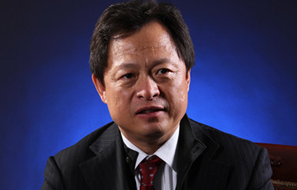Study: Hukou major factor in Shanghai marriages
A new sociology study has found that only about 20 percent of a sample of marriages in Shanghai involve residents with local hukou - or household registration - and migrants without Shanghai hukou.
The study, jointly conducted by sociologists from the University of British Columbia in Vancouver and Brown University in the United States, and released this week in the Chinese Sociological Review, reveals how China's hukou system is creating wider inequality between migrants and locals, and between the educated and less educated in Shanghai.
The researchers used data from a 2013 population survey in Shanghai, asking the respondents born in the 1980s about their own and their spouses' hukou and education when they first got married. The sample included 1,247 couples in Shanghai, half of whose population is migrants.
The study found that when hukou intermarriage - where one partner has local hukou and the other is a migrant - happens, other socioeconomic factors are usually at play. Couples were more likely to involve a Shanghai husband and a migrant wife (14 percent) than a Shanghai wife and a migrant husband (6 percent).
Education also proved to be an important factor in marital decisions, with the probability of a migrant marrying a spouse with Shanghai hukou increasing with the migrant's own education level.
"It's a bit of a trade-off," said Yue Qian, the study's lead author and assistant professor of sociology at UBC.
"If someone with Shanghai hukou marries a migrant, then their migrant spouse needs to at least have the same or a higher education level," Yue said on Thursday. "Otherwise, it seems they have nothing to gain economically from marriage."
The hukou system allows more convenient access to State healthcare and public education for children under 15 locally.
Yue said the assumption is that most people choose marriage partners based on love, shared values and interests, but that the study found that hukou status plays a major role in selecting a spouse.
"We found a strong tendency for individuals to marry within their hukou group," she said. "In other words, migrants tend to marry migrants and locals tend to marry locals. This finding suggests strong social boundaries between migrants and locals, because they don't marry out of their hukou group.
Yue said the research shows the need for continued hukou reform. "China is in the process of revisiting its hukou system, so a lot of local governments are thinking about reform," she said. "We think that it's important that policymakers are aware of the impact of the current system."
























